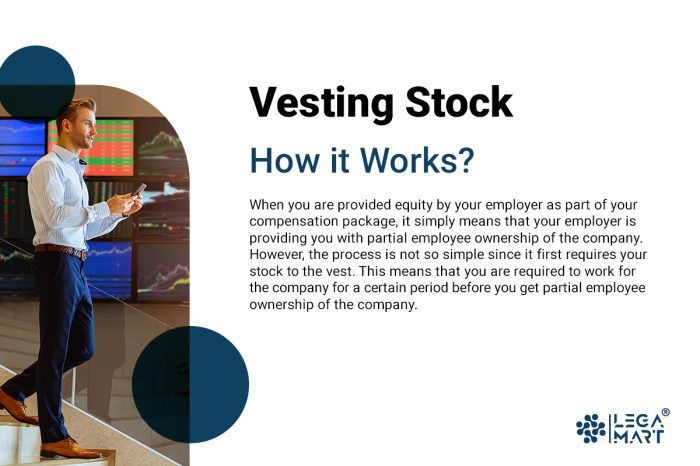Stock/share transfer
The transfer of shares is a common practice in the business world, and it can be subject to various legal issues. When transferring shares between parties in different countries, it is important to consider the relevant international laws and regulations that govern the transfer. The parties involved must ensure that they comply with all the legal requirements and formalities associated with the transfer, including any applicable tax laws. Additionally, they must also ensure that the transfer is valid and enforceable under the laws of the relevant jurisdictions.
Find best lawyers for Stock/share transfer
Issues related to Stock/share transfer
The transfer of shares is a common practice in the business world, and it can be subject to various legal issues. When transferring shares between parties in different countries, it is important to consider the relevant international laws and regulations that govern the transfer. The parties involved must ensure that they comply with all the legal requirements and formalities associated with the transfer, including any applicable tax laws. Additionally, they must also ensure that the transfer is valid and enforceable under the laws of the relevant jurisdictions.
There are a few things to consider when transferring shares between two businesses in different countries. The most crucial consideration is tax liability – each country will have its own rules and regulations about which taxes are payable on share transfers and at what rate. You’ll also need to take into account any foreign exchange rates, as well as any other associated costs (such as legal fees).
It’s essential to work with an experienced international business lawyer who can help you navigate these complex tax laws and make sure that the share transfer goes as smoothly as possible.

Regarding share transfers in international business, there are a few key things to keep in mind to minimise liability. First and foremost, ensure that all the proper paperwork is in order. This includes the physical transfer of shares and any documentation related to the share transfer itself. Next, be sure that you understand the terms of the share transfer agreement. In particular, pay close attention to any clauses related to liability and indemnification. Once you have reviewed these documents, consult with an attorney or another expert to get their opinion on the best way to proceed. Finally, remember that even if you take all of these precautions, there is always some risk involved in any share transfer.
There are a few key things to keep in mind when it comes to the transfer of shares in an international business context. First, it’s vital to ensure that all contractual and legal requirements are met. This means being clear on who the parties are, what the terms of the transfer are, and so on. Furthermore, it’s often necessary to obtain regulatory approval from relevant authorities before proceeding with a share transfer. Secondly, it’s essential to consider the tax implications of any share transfer. Different jurisdictions have different rules around taxation, so it’s essential to get advice from a qualified professional before proceeding. Finally, it’s also worth considering any potential currency risk involved in an international share transfer.
Latest Articles
Tell us more about your problem.
Please give a brief description about what it is you need to talk to our lawyers about ?
Frequently Asked Questions
What are the legal requirements for transferring shares in an international company?
Transferring shares in an international company can be a complex process and the legal requirements may vary depending on the countries involved. However, here are some general considerations that should be taken into account:
Shareholder Agreements: The first step is to review the shareholder agreements to determine if there are any restrictions on the transfer of shares. Shareholder agreements may include provisions related to pre-emption rights or other limitations on share transfers.
Compliance with Local Laws: It is important to comply with local laws in both the country where the company is incorporated and the country where the transaction is taking place. This may involve obtaining regulatory approvals or complying with securities regulations.
Documentation: The transfer of shares typically involves drafting and executing a share purchase agreement between the buyer and seller. Other documentation may include stock certificates, board resolutions, and other corporate filings required by law.
Tax Implications: Transferring shares may have tax implications for both the buyer and the seller. It’s important to seek guidance from experienced tax professionals who can advise you on the tax implications of the transaction.
Due Diligence: Conducting due diligence on the company and its shareholders is important to ensure that the transaction is lawful and that the buyer is aware of any potential risks associated with the investment.
Legal Advice: It’s important to work with experienced legal counsel who is familiar with the laws and regulations of both countries involved in the transaction. They can advise you on the most effective strategies for transferring shares and protect your interests.
These are some of the key legal requirements for transferring shares in an international company. However, the specifics of the transaction will depend on the unique circumstances involved. It’s important to seek appropriate legal and financial advice to ensure compliance with all relevant laws and regulations.
How do the laws of the United Kingdom and China affect the process of share transfer?
The laws of the United Kingdom (UK) and China have specific requirements that affect the process of share transfer. Here are some key differences:
Shareholder Agreements: In the UK, shareholder agreements may be used to govern the transfer of shares and may include provisions that restrict the transfer of shares. In China, there is no specific law governing shareholder agreements, but restrictions on share transfers may be included in the articles of association or other internal corporate documents.
Approval of Share Transfer: In the UK, the transfer of shares in a public company requires approval from the shareholders, while private companies may have more flexibility in their share transfer process. In China, the transfer of shares must be approved by the relevant government agency, such as the State Administration for Market Regulation.
Documentation: In both countries, the transfer of shares typically involves drafting and executing a share purchase agreement between the buyer and seller. However, the specific documentation required may vary depending on the company’s location and other factors.
Tax Implications: In the UK, capital gains tax may be applicable to the transfer of shares, while stamp duty may be payable on the sale of shares in certain circumstances. In China, income tax and other taxes may be applicable to the transfer of shares, and tax compliance requirements may apply.
Due Diligence: Conducting due diligence on the company and its shareholders is important in both countries to ensure that the transaction is lawful and that the buyer is aware of any potential risks associated with the investment. However, the specific due diligence requirements may vary depending on local laws and regulations.
Legal Advice: It’s important to work with experienced legal counsel who is familiar with the laws and regulations of both countries involved in the transaction. They can advise you on the most effective strategies for transferring shares and protect your interests.
These are some of the key differences between the laws of the UK and China that affect the process of share transfer. It’s important to seek appropriate legal and financial advice to ensure compliance with all relevant laws and regulations.
What are some common issues that arise in share transfers, and how can they be addressed?
There are several common issues that can arise in share transfers, and it’s important to address them early on to ensure a smooth transaction. Here are some examples:
Shareholder Agreements: Shareholder agreements may include restrictions on the transfer of shares or require shareholder approval for any transfer. It’s important to review these agreements carefully to ensure compliance.
Valuation Issues: Disagreements over the valuation of shares can arise between buyers and sellers. This can be addressed by retaining an independent third-party valuation expert to provide an objective analysis.
Tax Implications: Transferring shares can have tax implications for both the buyer and seller. It’s important to seek guidance from experienced tax professionals who can advise you on the tax implications of the transaction.
Regulatory Compliance: Transferring shares may also require regulatory approval or compliance with securities regulations. It’s important to work with legal counsel who is familiar with the relevant laws and regulations to ensure compliance.
Due Diligence: Conducting due diligence on the company and its shareholders is important to ensure that the transaction is lawful and that the buyer is aware of any potential risks associated with the investment. This can involve reviewing financial statements, analyzing market trends, and researching the company’s reputation.
Documentation: The transfer of shares typically involves drafting and executing a share purchase agreement between the buyer and seller. Other documentation may include stock certificates, board resolutions, and other corporate filings required by law.
Language Barriers: International share transfers may involve language barriers, which can make communication difficult. Translation services may be required to ensure that all parties fully understand the terms of the transaction.
By addressing these common issues and working with experienced legal and financial professionals, you can help ensure a successful share transfer transaction.











